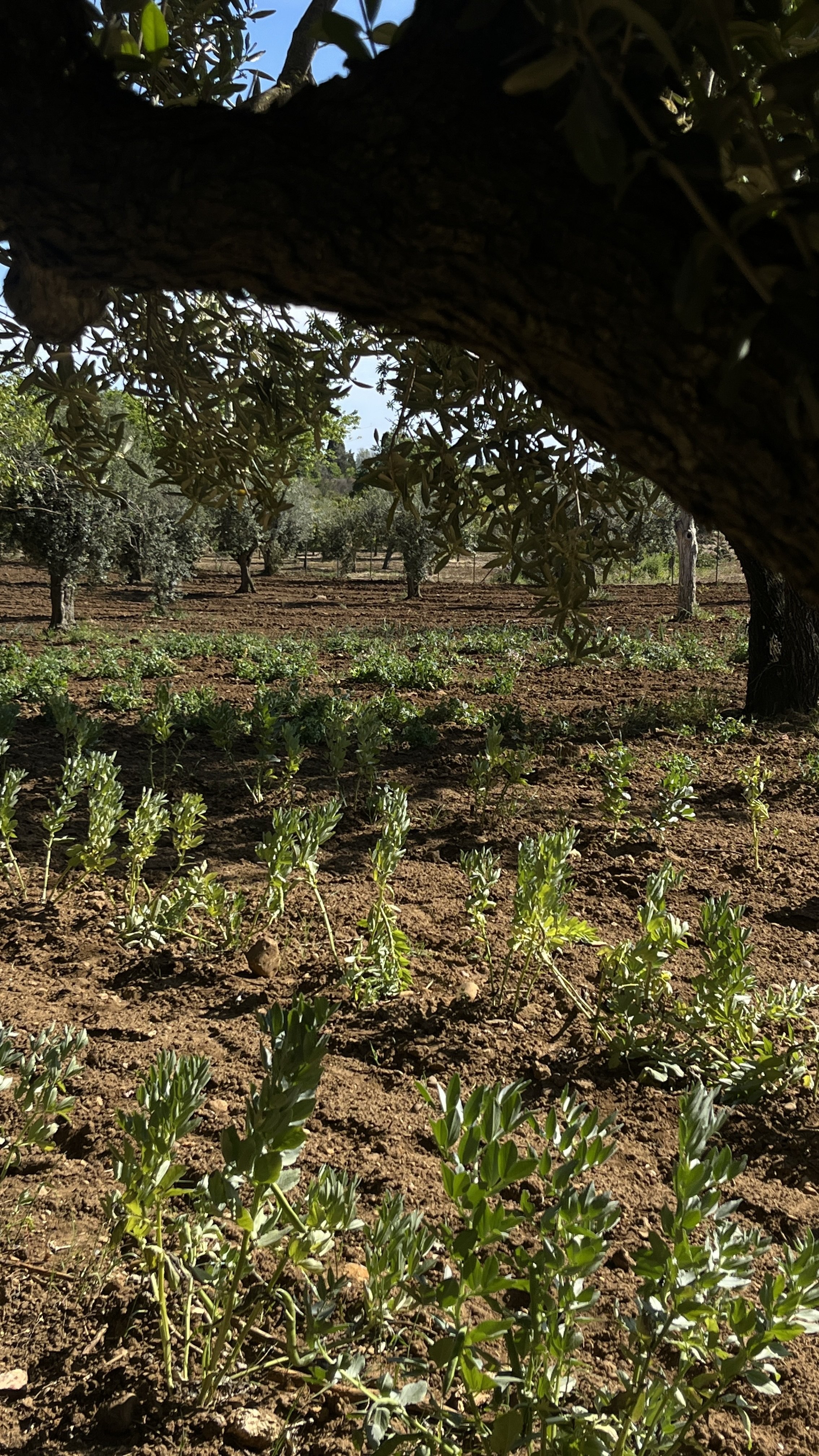one farm two lands
Parco dei Sesi sets on the Cimillia hill, a young geologic land born about 20 000 years ago during the last eruption of the Gelkamar Volcano. Our volcanic soil is rich in high minerals, ideal for certain agricultures but its scarcity in organic matters makes it only possible to very rustic and resilient plants to thrive. Welcome to our Olive and Capers’ farm.
farming in pantelleria
In Pantelleria, farming can only be done by hand and a hoe! No machinery, no shortcuts, only the slow, precise labor of our pationate farmers. Cultivation on Pantelleria is shaped by its dramatic landscape and arid winds, the impredectible weathers, the long scarcity period and high summer temperatures . This farming effort is part of a legacy recognized by UNESCO, which protects the island’s agricultural traditions, including the iconic vite ad alberello—low, wind-resistant grapevines grown in individual basins carved into the earth. Our about 150 olive trees are scattered on the 4 hectars of land exposed to sea and the wind and produce about 150 liters of the pure olive oil every two years. A work of patience and great gratitude when it comes to taste the green pressed liquid after years of patience, pruning, cleaning and praying!
olive oil
philosophy
Farming on Pantelleria is an act of resilience and respect. Our land is rooted in volcanic soil, rich in minerals and character, but also exposed to extreme weather conditions, strong winds, high scarcity and difficult terrains. Each fruit harvested is a product of exceptional intensity and hard labor, patience.
Located inside a 5,000-year-old archaeological site, our farm is not just about what we grow, but how we coexist with the land. Every gesture is made in respect of the environment and the island’s ancient legacy. We see cultivation as a form of stewardship that protects the landscape as much as it nourishes from it.
We farm for excellence, meaning, and balance, with every harvest, a reflection of the island itself.
archeological land
our land
The volcanic land of Cimilia where Parco Dei Sesi is situated in Pantelleria is one of the latest volcanic eruption of the Gelkamar Volcano 8000 years old. A land apparently quite hostile to any cultivation, quite dry and filled up with huge black volcanic stones .This reality has led the couple to understand that Pantelleria dictates its rules, and not the other way around. Cimilia creates an environment suited for cultivating olive trees and capers, a major wealth of the island since the Roman times. The rich volcanic soil, the warm Mediterranean climate and the volcanic rock provide ideal conditions for these crops to thrive, ensuring that they retain their distinct flavors and qualities. The focus of the farm goes in an extreme utmost produce. The cultivation of the olive trees respects the traditions of extreme low pruning, and hand picking both typical of the island such as the cold pressed oil processing.
capers’ farm
resilience
Here, everything is done by hand and absolute no chimicals are allowed. No machinery, no shortcuts, only the slow, precise labor of those who understand this land’s rhythm. Cultivation on Pantelleria is shaped by its dramatic landscape and arid winds, making it both demanding and deeply rewarding.
This effort is part of a legacy recognized by UNESCO, which protects the island’s agricultural traditions, including the iconic vite ad alberello—low, wind-resistant grapevines grown in individual basins carved into the earth. We apply the same philosophy to our olive trees and caper bushes, tending each plant with care and knowledge passed through generations.
farming in salemi
Out of respect for the fragile land of Pantelleria, we chose not to push its boundaries. Instead, we turned to the more generous, fertile hills of Salemi, in western Sicily, still in the region of Trapani—a place where the land itself invites larger, regenerative cultivation. There, we continue the same philosophy born on Pantelleria: growing seasonally, slowly , and treating agriculture as a dialogue with the land.By cultivating our own ingredients across two territories, we can ensure that every dish reflects the same care, integrity, and sense of place that define Parco dei Sesi. Each week, we bring the bounty of our production and the neighbour farms—fresh vegetables, herbs, and fruits,ricotta cheese.
What unites these two places is a single philosophy: quality over quantity, respect for the environment, and the belief that food tastes best when it tells a story—of place, of people,of respect and passion.










